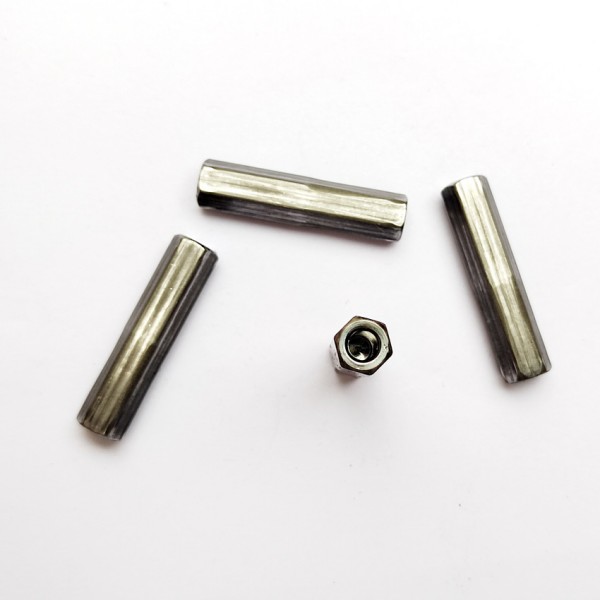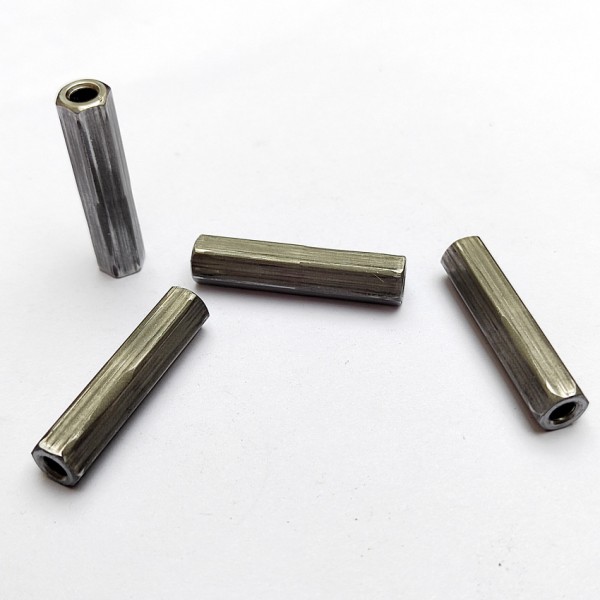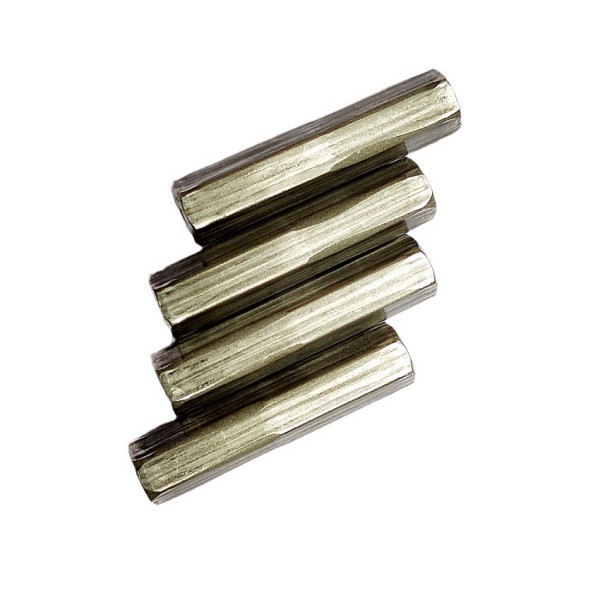- Time:2024/12/04 Posted:Dongguan Jierui Hardware Technology Co., Ltd
In today’s fast-paced industrial world, businesses often face unique challenges that demand customized solutions. Non-standard parts manufacturers play a crucial role in meeting these bespoke requirements. Unlike traditional parts that are mass-produced according to standard specifications, non-standard components are tailor-made to align with specific applications, industries, and client needs. But how exactly do these manufacturers rise to the occasion and meet such diverse demands? This article delves into their processes, technologies, and strategies, offering an insightful look at the pivotal role they play.
Understanding Non-Standard Parts
What Are Non-Standard Parts?
Non-standard parts refer to custom-designed components that deviate from regular industrial norms or specifications. They may vary in dimensions, materials, finishes, or functionalities to fit unique purposes. These parts are widely used in industries such as aerospace, automotive, medical devices, and renewable energy.Why Are They Necessary?
Standard parts cannot always address the specific requirements of advanced machinery or specialized equipment. For instance, a cutting-edge medical device might need a particular screw size or material that cannot be sourced off the shelf. Non-standard parts bridge this gap, ensuring precision and optimal performance.
How Manufacturers Meet Unique Demands
Non-standard parts manufacturers employ a variety of techniques and strategies to deliver high-quality, customized components. Below are key approaches they use to address unique customer requirements:
1. Advanced Design Capabilities
Customization begins with design. Manufacturers use sophisticated Computer-Aided Design (CAD) software to create detailed blueprints tailored to the client's specifications. These tools allow for:
Precise modeling of parts.
Adjustments based on feedback.
Simulation of performance in real-world conditions.
Close collaboration with clients during the design phase ensures the final product aligns perfectly with their expectations.
2. Material Selection and Testing
The choice of material is critical in meeting performance standards. Manufacturers work with a wide range of metals, alloys, plastics, and composites. For example:
Aerospace parts may require lightweight yet durable titanium.
Medical implants demand biocompatible materials like surgical-grade stainless steel or cobalt-chromium alloys.
Rigorous testing is conducted to validate the material's suitability under operational stresses, including high temperatures, corrosive environments, or mechanical loads.
3. Advanced Manufacturing Technologies
To produce non-standard parts, manufacturers rely on cutting-edge technologies:
CNC Machining: Ensures precision and consistency, even in complex geometries.
3D Printing: Ideal for rapid prototyping and small-batch production.
Laser Cutting and Welding: Provides accurate shaping and strong joins in intricate designs.
These techniques allow manufacturers to meet demanding tolerances and produce components with intricate features.
4. Custom Tooling
In some cases, standard tools and molds are inadequate. Manufacturers create custom tooling solutions to facilitate the production of unique parts. This process often involves:
Designing and fabricating specialized molds.
Using dies tailored to specific shapes.
Custom tooling enhances accuracy and reduces waste, ensuring the part meets exact specifications.

Tailored Solutions for Diverse Industries
Aerospace Industry
Aircraft manufacturers require high-precision components that can withstand extreme conditions. Non-standard parts manufacturers deliver customized fasteners, brackets, and turbine blades tailored to stringent safety and performance standards.
Automotive Industry
From luxury cars to electric vehicles, automakers depend on non-standard parts to differentiate their designs. Examples include lightweight engine components and aerodynamic body parts developed to enhance fuel efficiency.
Medical Devices
Producers of surgical instruments and implants rely on non-standard parts to ensure patient safety and comfort. Customized screws, plates, and joints are common in this sector.
Renewable Energy
Wind turbines, solar panels, and other renewable energy systems demand unique parts, such as custom bearings or support structures. Manufacturers develop these to enhance efficiency and longevity.
Collaboration with Clients
Effective communication is key in manufacturing non-standard parts. Companies work closely with clients to:
- Gather detailed requirements.
- Provide design and material recommendations.
- Offer prototypes for testing and validation.
This partnership ensures that the final product not only meets but exceeds client expectations.

Challenges in Meeting Unique Demands
Despite their expertise, non-standard parts manufacturers face several challenges, including:
- Complex Specifications: Meeting exacting standards requires advanced tools and highly skilled personnel.
- High Costs: Customization often involves higher production costs, especially in low-volume orders.
- Short Lead Times: Clients may need parts urgently, requiring streamlined processes and rapid turnaround.
Manufacturers address these issues by leveraging efficient workflows, maintaining robust supply chains, and investing in workforce training.
Embracing Innovation to Stay Competitive
To remain competitive, non-standard parts manufacturers continually adopt new technologies and practices:
- Artificial Intelligence (AI): Optimizes design and production processes.
- IoT Integration: Enhances monitoring of equipment and quality assurance.
- Sustainability Practices: Reduces waste and incorporates eco-friendly materials.
By staying at the forefront of innovation, these manufacturers ensure they can handle even the most complex requests.
Quality Assurance and Certification
Quality assurance is paramount in the production of non-standard parts. Manufacturers adhere to international standards such as ISO 9001 or AS9100 (for aerospace) to guarantee precision and reliability. Comprehensive inspections, including dimensional analysis and stress testing, are carried out to verify compliance.
The Future of Non-Standard Parts Manufacturing
As industries evolve, the demand for non-standard components is expected to grow. Emerging technologies like additive manufacturing and AI will continue to revolutionize the sector, enabling faster production, enhanced precision, and cost savings. Additionally, the focus on sustainability will drive the development of eco-friendly solutions.
Conclusion:
Non-standard parts manufacturers play an indispensable role in modern industry by providing tailored solutions to unique challenges. Through advanced design, material expertise, cutting-edge technology, and a commitment to quality, they meet diverse demands with precision and innovation. As technology advances and industries push boundaries, these manufacturers will remain pivotal in shaping the future of customized manufacturing.
